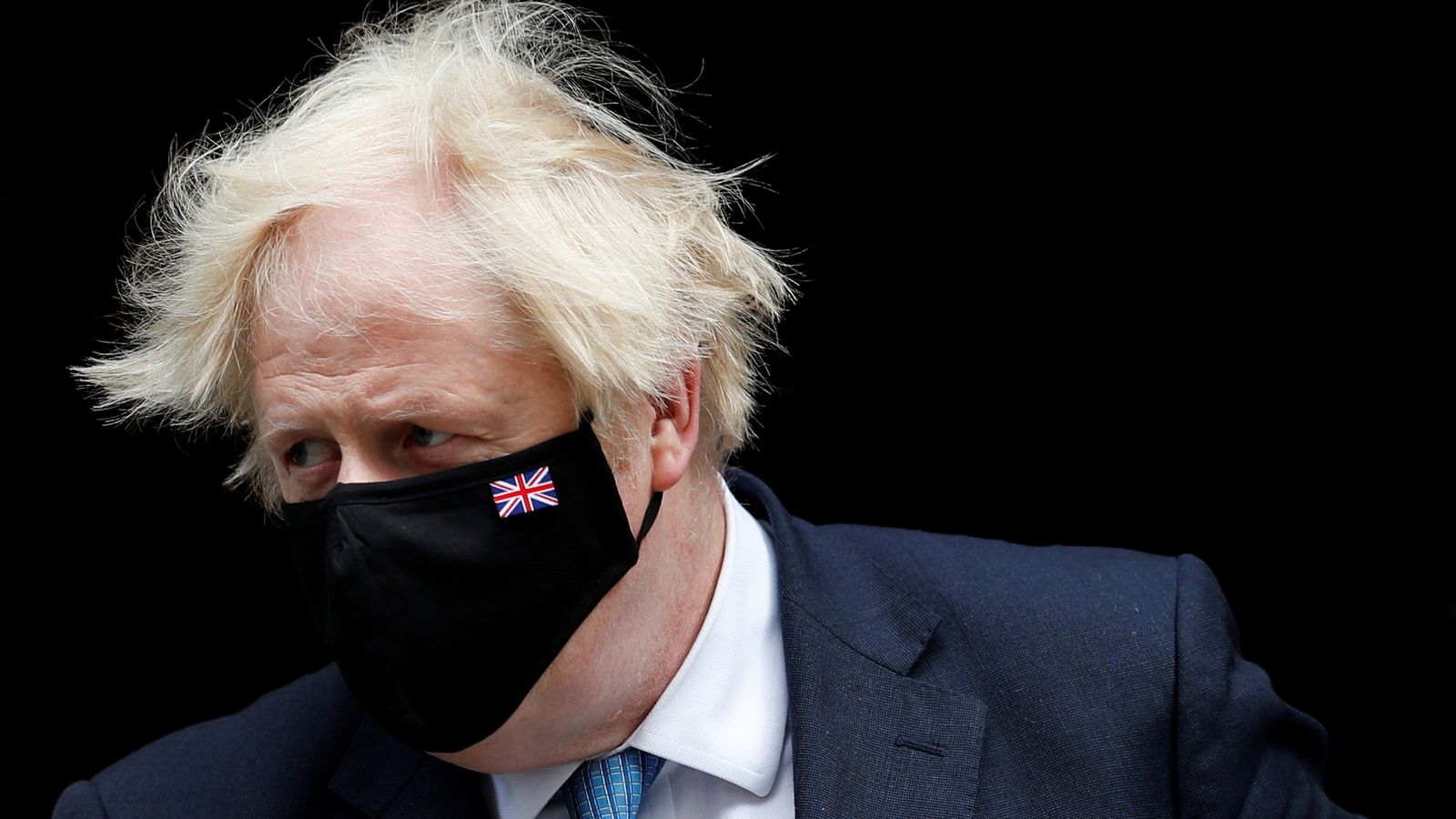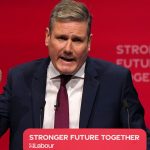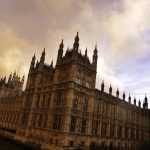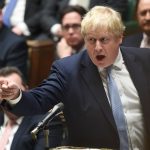Until today, the British government identified the problem with the Northern Ireland Protocol as its interpretation and enforcement by the EU.
In yet another trademark trolley swerve, today Brexit minister Lord Frost changed tack and said the problem was the text of the document itself.
By demanding alternations that are all but impossible for the EU to agree outright, the government has executed a big change of stance and strategy.
Please use Chrome browser for a more accessible video player
Incidentally it is something of a wonder that Michael Gove, who as Cabinet Office minister negotiated and signed off on the text of the Protocol implementation scheme just last December, feels he can stay in his job.
Back then he enthusiastically declared it represented the ‘best of both worlds” as well as claiming he had solved the sausage border issue.
The Brexit minister Lord Frost is understood to have spent weeks going round Whitehall rubbishing the deal Mr Gove negotiated.
Now humiliating Mr Gove’s deal is government policy.
One might ask: Was poor Mr Gove duped in the negotiation? Was innocent Mr Gove naive? Was crafty Mr Gove exaggerating the benefits to the media for political expediency?
Luckily Mr Gove is well practiced in adopting tantric political positions without apparent consequences or worry, and anyway luckily seems to be absent from the political scene today.
So what is Britain’s plan now?
Please use Chrome browser for a more accessible video player
The UK has demanded a renegotiation but EU sources – as well as the Irish minister for Brexit – say at the moment there is a “zero” chance of this taking place.
The clock is ticking however and even no action is a deliberate choice by the EU.
The Protocol and subsequent agreements – which is still legally in force since Britain had not triggered the Article 16 mechanism for unilateral action – requires the UK to introduce yet more checks on goods crossing the Irish Sea before October, so that’s an effective deadline for this, the fourth series of Brexit Wars.
But if nothing happens and the UK simply doesn’t comply with future obligations, what then?
This is where Boris Johnson’s gamble lies.
In an ideal world, his government would love to scrap the EU institutional oversight of Northern Ireland goods, but that was a cornerstone of the entire Brexit deal negotiated in autumn 2019.
Instead the UK appears to be able to live with something approximating the status quo, effectively unenforced by EU institutions, and without any additional checks or changes that would be required in future.
The longer the status quo has to bed in, ministers hope, the harder it is for the EU to challenge.
As time goes on, the failure to implement the checks becomes an established fact.
Please use Chrome browser for a more accessible video player
The hope amongst unionists is that by sitting tight, Britain will be able to cast the EU as the disrupters, the ones upsetting the balance on the island of Ireland.
And what can the EU do anyway – build their own border in the Irish Sea? Or tinker with the Northern Ireland-Republic border? Or just fine the UK indefinitely and slap tariffs on goods, risking damage to their own side?
All of this thinking will be an absolute anathema not only to European capitals but also the European Commission.
They will want to fight such an approach – which they say leaves the single market at risk – in the courts and coral the EU27 against it.
But before the fight, first there is August when everyone is on holiday. Then suddenly busy September with the deadline almost upon everyone.
Then there are political distractions – elections in France (next April) and Germany (this September) where cycles are out of sync, pandemic crises and the like.
The EU case is not clear cut since there are already signs “trade diversion” – trade from Ireland to Northern Ireland – displacing that from Great Britain. This would in itself be a breach of the Protocol sufficient to trigger Article 16.
So the outcome is not clear. But the UK is determined that in the months to come, it should be the EU which has to proactively decide what the next stops should be while Britain sits back – hoping this makes it bad cop in this negotiation.
It might work – but equally it might not.






















